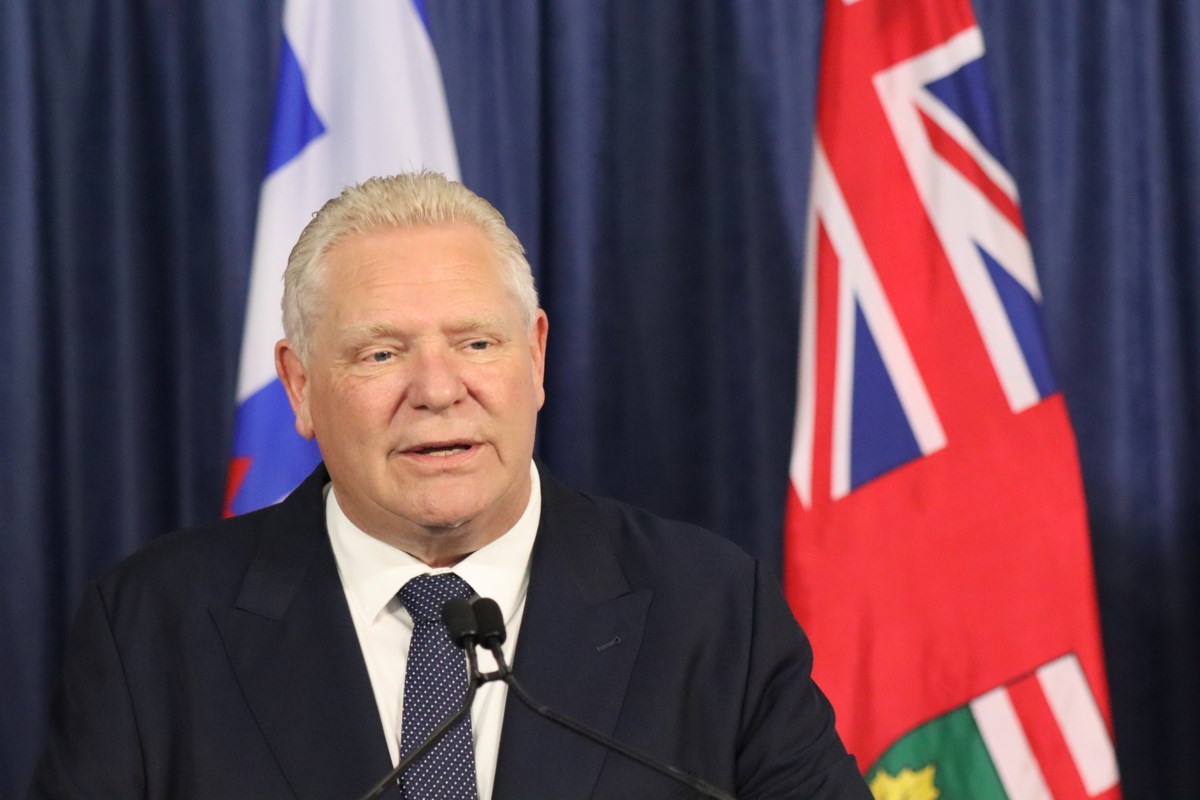- cross-posted to:
- fuck_cars@lemmy.ml
- cross-posted to:
- fuck_cars@lemmy.ml
Text of the article:
Ford floats use of notwithstanding clause in Toronto bike lanes case
‘Let’s see what happens at the Court of Appeal,’ Premier Doug Ford told reporters
Aidan Chamandy
Aug 6, 2025 1:41 PM
Premier Doug Ford is gearing up for a fight after a judge pumped the brakes on his government’s plan to remove some Toronto bike lanes.
On Wednesday, Ford left open the possibility of invoking the notwithstanding clause to ensure his government retains the authority to remove bike lanes it disapproves of.
“Let’s see what happens at the Court of Appeal, and then we’ll go from there,” he said at an unrelated announcement in Thornhill.
Ford criticized Justice Paul Schabas’ decision as the “most ridiculous” he’s ever seen.
“You talk about the Charter? It’s trampling on the democratic rights of Ontarians that elected a government, just a few months before … that said they’re going to move, not eliminate … bike lanes from the main arterial roads,” Ford said.
Ford, however, struck a confident tone and said he has confidence the Court of Appeal will rule in his government’s favour.
Using the notwithstanding clause would allow the government to push through the removals, regardless of what the three-judge panel at the Court of Appeals says.
In his July 30 ruling, Justice Schabas wrote “the evidence is clear” that “restoring a lane of motor vehicle traffic … will create greater risk to cyclists and to other users of the road.”
Schabas’ decision didn’t hinge on whether he thought citizens had a right to bike lanes. Instead, it revolved around whether the government’s arguments for removing the lanes — and causing harm to non-driving road users — was based in fact.
The government’s central point was that removing the bike lanes on Yonge Street, University Avenue and Bloor Street would reduce congestion. That, according to Schabas, was predicated on “weak anecdotal evidence and expert opinion,” which was “unsupported, unpersuasive and contrary to the consensus view of experts.”
He wrote that “there is no evidence that the government based its decision on data, manuals or expert ‘highway engineering’, or that its decision would ‘contribute to highway safety.’”
“Rather, the evidence is to the contrary,” he wrote.
Ford is no stranger to using — or threatening to use — the notwithstanding clause, a constitutional provision that was previously taboo in Ontario politics.
He was the first premier in the province’s history to invoke the clause, which has been in place since 1982.
In 2018, he threatened to invoke the clause to reduce the number of Toronto city council members from 47 to 25. Doing so was ultimately unnecessary because the Court of Appeal upheld Queen’s Park’s authority to make the council change.
In 2021, the Superior Court struck down Ford’s attempt to [extend third-party election spending limits](https://www.barrietoday.com/local-news/supreme-court-strikes-down-ford-governments-third-party-political-ads-law-10339531: outbound&utm_medium=referral) to 12 months, up from six months. Ford recalled the legislature and passed the bill with the notwithstanding clause — marking the first time in provincial history the clause was actually used.
Then, in 2022, Ford [used the clause](https://www.ola.org/en/legislative-business/bills/parliament-43/session-1/bill-28: outbound&utm_medium=referral) to ban education workers from striking after contract negotiations broke down. That sparked intense public backlash and Ford repealed the bill days later.
—
CORRECTION: An earlier version of this article said Ford in 2022 used the notwithstanding clause to ban teachers from striking. It was in fact used to stop education workers, like librarians, custodians and early childhood educators, from striking.



Can you explain what the hell this is for non-Canadians? The article has basically no information on what this is or whether it’s appropriate.
The fact that the premier has unilateral authority over local street design is completely insane to me.
Normally, laws have to respect the Canadian Charter of Rights and Freedoms.
However, section 33 of said Charter is known as the notwithstanding clause. This lets government pass laws that ignore section 2 (containing such fundamental rights as freedom of expression, freedom of conscience, freedom of association and freedom of assembly) and sections 7 to 15 (containing the right to life, liberty and security of the person, freedom from unreasonable search and seizure, freedom from arbitrary arrest or detention, a number of other legal rights and the right to equality).
I’ve literally never seen it proposed for any legislation which would improve society. It exists because comservatives at the time the Charter was introduced were uncomfortable with the idea they couldn’t pass legislation which restricts people’s rights.
When invoked, it expires after 5 years but this can be renewed perpetually, as far as I understand.
So let’s have human rights unless our leaders decide they don’t want us to? That’s pretty fucking unhinged.
The US Constitution is littered with similarly anti-democratic gates. Remember that the aristocrats who framed these documents were just as terrified by what free people might do with democracy and freedom as they were vocal in their support for such ideals when it came to rallying people toward separatist war.
Using the notwithstanding clause to build high speed rail and dense housing? Nah lets fuck up some bike lanes instead
Not a Canadian but the notwithstanding clause is a way to pass a law that is not subject to judicial review, I believe for a limited time (5 years?).
If you need more than that, the Wikipedia page is good.